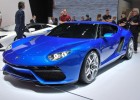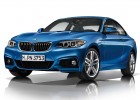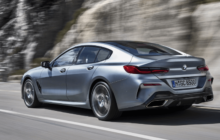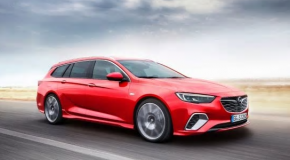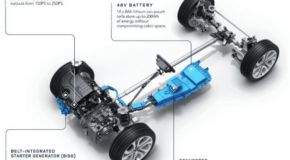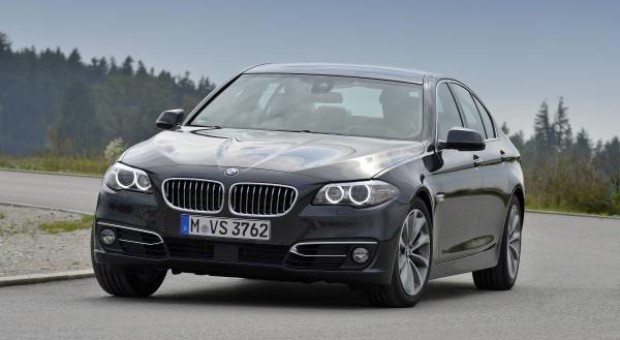
The All-New BMW 518d & BMW 520d
New generation of four-cylinder diesel engines with BMW TwinPower Turbo technology increase the driving pleasure offered by the worldwide bestseller and achieve further reductions in fuel consumption and emissions – The new BMW 520d outclasses its segment rivals in the efficiency race: engine output rises to 140 kW/190 hp, average fuel consumption drops to as little as 4.1 l/100 km [68.9 mpg imp] and CO2 emissions to 109 g/km.
It may not be its only strength – far from it – but outstanding efficiency is undoubtedly a BMW 5 Series speciality. Indeed, the model series’ achievements in this area have played a major role in securing its global bestselling status at the premium end of the executive class. And now the BMW 5 Series Sedan and BMW 5 Series Touring have set about extending their lead in the efficiency stakes once again. The introduction of a new generation of four-cylinder diesel engines improves further on what was already an exceptional balance between performance and fuel economy. The new 2.0-litre units with BMW TwinPower Turbo technology boost the output of the new BMW 518d and new BMW 520d by another 5 kW apiece.
At the same time, fuel consumption and CO2 emissions in the EU test cycle have been reduced by as much as 0.4 litres per 100 kilometres / 10 grams per kilometre. For example, the new BMW 520d Sedan – which now produces 140 kW/190 hp – burns just 4.7–4.3 litres of fuel per 100 kilometres (60.1–65.7 mpg imp) with CO2 emissions of 114–124 g/km. If the optional eight-speed Steptronic transmission is specified, these figures improve further to 4.5–4.1 l/100 km (62.8–68.9 mpg imp) with CO2 emissions of 109–119 g/km, depending on the tyre format fitted.
The new four-cylinder diesel engines generate their respective maximum outputs of 110 kW/150 hp and 140 kW/190 hp at 4,000 rpm, and their peak torque of 360 / 400 Newton metres (266 / 295 lb-ft) is on tap between 1,750 and 2,500 rpm. The increase in output and torque has a noticeable effect on the sporty driving characteristics of the BMW 518d, BMW 520d and BMW 520d xDrive. All the model variants – in both Sedan and Touring guise – accelerate from 0 to 100 km/h (62 mph) 0.2 seconds more quickly than their respective predecessors. With the standard six-speed manual gearbox fitted, the new figures are 9.5 seconds for the BMW 518d Sedan (BMW 518d Touring: 9.9 seconds), 7.9 seconds for the BMW 520d Sedan (BMW 520d Touring: 8.1 seconds) and 7.9 seconds for the BMW 520d xDrive Sedan (BMW 520d xDrive Touring: 8.2 seconds).
The advances made in efficiency alongside the optimised power delivery are reflected in fuel economy and emissions unparalleled at the premium end of the executive class. The average fuel consumption of the new BMW 518d Sedan has been reduced to 4.7–4.3 litres per 100 kilometres [60.1–65.7 mpg imp] (BMW 518d Touring: 5.0–4.7 l/100 km [56.5–60.1 mpg imp]). CO2 emissions now stand at 114–124 grams (122–132 grams) per kilometre. The figures for the new BMW 520d Sedan and the new BMW 520d Touring are virtually identical: 4.7–4.3 litres per 100 kilometres (60.1–65.7 mpg imp) and 114–124 grams per kilometre for the Sedan, and 5.0–4.6 litres per 100 kilometres (56.5–61.4 mpg imp) and 122–132 grams per kilometre for the Touring model (as per EU test cycle, depending on tyre format).
The new entry-level diesel models – the BMW 518d Sedan and BMW 518d Touring – now offer output of 110 kW/150 hp and peak torque of 360 Newton metres (266 lb-ft). The 140 kW/190 hp variant of the new four-cylinder power unit, meanwhile, boosts peak torque by 20 Newton metres (15 lb-ft) to 400 Nm (295 lb-ft). This version of the engine is fitted in the BMW 520d Sedan and BMW 520d Touring as well as the BMW 520d xDrive Sedan and BMW 520d xDrive Touring models with intelligent all-wheel drive. The likewise updated eight-speed Steptronic transmission is available for the rear-wheel-drive models as an option in place of the standard six-speed manual gearbox, and included as standard on the all-wheel-drive models.
These new gains in fuel economy represent further evidence of the effectiveness of the ongoing development work – focusing on the optimisation of combustion engines and other components – under the BMW EfficientDynamics banner. The current (sixth) generation of the BMW 5 Series has set the pace in its class in terms of economy and driving pleasure from day one, thanks to extensive use of BMW EfficientDynamics innovations, such as BMW TwinPower Turbo technology, the eight-speed Steptronic transmission, Electric Power Steering, Brake Energy Regeneration and numerous other measures. The exemplary levels of efficiency achieved as a result underline the trailblazing character of the BMW 5 Series, as do its elegantly sporty design defined by harmoniously flowing lines, the modern functionality of the interior – with innovative display and control elements – plus driver assistance systems from BMW ConnectedDrive and superior chassis technology. Additional innovations like ECO PRO mode and the Auto Start Stop function (also available with the automatic transmission) are now likewise fuelling this commitment to building on its leading position.
With the updated eight-speed Steptronic transmission fitted, the new BMW 518d Sedan accelerates from 0 to 100 km/h (62 mph) in 9.4 seconds (BMW 518d Touring: 9.8 seconds). The new BMW 520d Sedan needs just 7.7 seconds for the same sprint (BMW 520d Touring: 8.0 seconds). The models fitted as standard with the eight-speed Steptronic transmission – the BMW 520d xDrive Sedan and BMW 520d xDrive Touring – post 0 to 100 km/h (62 mph) acceleration figures of 7.9 / 8.2 seconds. New fuel consumption and emissions benchmarks in the executive class are also set with the eight-speed Steptronic transmission. The new BMW 518d Sedan records figures of 4.6–4.2 litres per 100 kilometres (61.4–67.3 mpg imp) and 110–120 grams per kilometre (BMW 518d Touring: 4.9–4.5 l/100 km [57.7–62.8 mpg imp], 118–128 g/km). The new BMW 520d Sedan improves this performance to 4.5–4.1 litres per 100 kilometres (62.8–68.9 mpg imp) and 109–119 grams per kilometre (BMW 520d Touring: 4.9–4.5 l/100 km [57.7–62.8mpg imp], 118–128 g/km). The average fuel consumption of the new BMW 520d xDrive Sedan is 5.1–4.7 litres per 100 kilometres [55.4–60.1 mpg imp] (BMW 520d xDrive Touring: 5.4–5.1 l/100 km [52.3–55.4 mpg imp]), and CO2 emissions are 124–134 grams (Sedan) and 133–143 grams per kilometre (Touring; all as per EU test cycle, depending on tyre format).
This latest round of engine updates sees the BMW 5 Series underlining once again its status as a fertile breeding ground for innovation in the brand’s model-line up. The latest advances made under the banner of BMW EfficientDynamics – such as the ongoing process of optimisation in the areas of comfort-enhancing equipment, functionality and intelligent connectivity courtesy of driver assistance systems and mobility services from BMW ConnectedDrive – help ensure the BMW 5 Series represents the leading edge of technology. The BMW 5 Series has therefore laid the ideal foundations to further increase its popularity and maintain its global market leadership at the premium end of the executive class into the future. It is an approach that has enabled the current model to become the leading light in the successful history of the BMW 5 Series, which dates back to 1972. With sales now topping 1.5 million units, the current BMW 5 Series has already outstripped the previous most successful generation.




